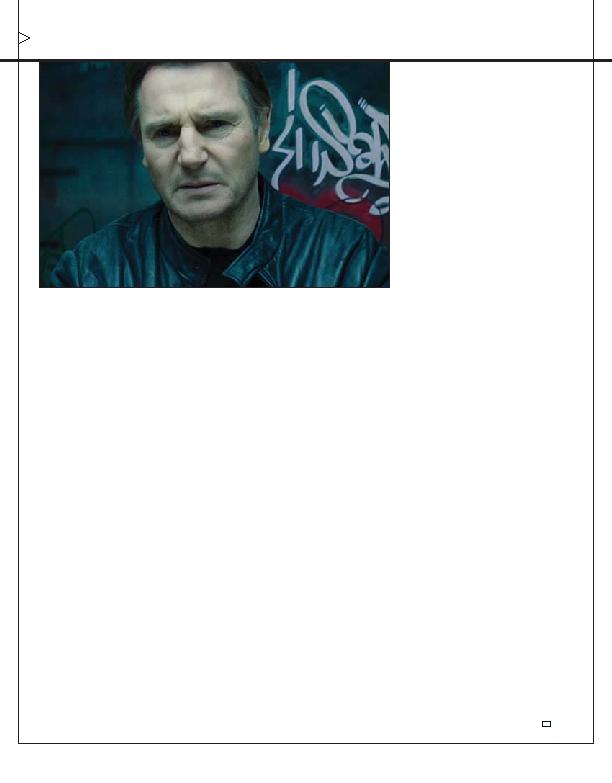
they didn't start collaborating on screenplays
until 2004. In the years before, both men had
worked with other writing partners and were
familiar with the process. Butcher likens it to
two divorcees getting remarried in that both
parties are wary and very conscious of trying
to accommodate the other. "But, as William
S. Burroughs once said, `When you have two
minds working together, it can create a third
mind,'" Butcher says. "I think that creative
alchemy, when it works, is where the best
work is produced."
Goldberg with a novel and a proposition.
The novel, "Out of My Head" by Didier van
Cauwelaert, was an existential tale of mem-
ory and identity with traces of a thriller. The
proposition was simple: Make it into a film.
sumed a different role for them this time
around. Obviously, the novel offered up
characters and concepts and situations but,
more importantly, as Butcher recalls, "It of-
fered up this series of reveals that were quite
accessible, but also very original and very
cinematic." The scribes knew that if they
reveals, they could create something new in
the well-worn conspiracy genre.
to address a convention of scientists. After
he forgets his briefcase in a taxi, he leaves his
wife, Liz (January Jones), at the hotel to track
it down. Things quickly spiral out of control
when the car Martin is traveling in ends up
in a river, leaving him in a coma. Upon wak-
ing and returning to the hotel, he finds that
no one recognizes him, not even Liz. And to
make matters worse, there's a man who con-
vinces everyone that he is Martin, including
Liz. Aided only by a taxi-driving immigrant
named Gina (Diane Kruger) and a former
Stazi agent named Jurgen (Bruno Ganz),
Martin must uncover why he has been re-
placed in his life -- and whether it was even
his life in the first place.
gether building the first draft, which, in the
case of Unknown, took about three months.
One early change Butcher and Cornwell
made to the story was its location. The novel
is set in Paris, which they felt was too familiar
to American audiences. Moving the story to
Berlin facilitated a better sense of a stranger in
plore their long-held fascination with post-
Cold War Germany. As Martin's arc progresses
and we learn more about him, the writers felt
it was important that there be a character he
could relate to in his new context. This neces-
sitated another change, the invention of the
character Jurgen: a wounded, wise and world-
weary remnant of East Germany's past. "Jur-
gen became a stealth character, someone you
create to play a minor role who ends up steal-
ing the film," Cornwell laughs. "We really
had to work to maintain the balance, as this is
still Martin's story."
was the science plot. Martin has been working
with Dr. Bressler (Sebastian Koch) on a new
strain of corn that is resistant to insects and
environmental concerns and could grow in
some parts of the world where it couldn't be-
fore. As Martin discovers, a group called Sec-
tion 15 has been tasked with making sure this
new strain never becomes a reality. Though
Section 15 appears in the book, there isn't
much written about them, so Butcher and
Cornwell had to develop their story. Thus, Sec-
tion 15 became a nod to the rather ridiculous
genre conceit that these organizations are able
to plan chaos down to the smallest detail. "Jur-
gen has two lines, the one about how these
groups are good, but they're not God -- and
the one about their exhaustive research and
planning. We absolutely wanted to wink at
the audience about the sort of things we're ex-
pected to accept in these stories, but also have
something that, upon close review, is actually
true," Butcher says. "Kind of a tightrope to
walk." As Cornwell elaborates, a conspiracy
isn't a reveal with modern audiences -- it's ex-
pected. "A bank is expected to be corrupt,
politicians are expected to be on the take. Sus-
pension of disbelief is no longer just for
movies; it's the way the world works. We
wanted to make something that spoke to a so-
phisticated audience, one who finds the im-
plied more interesting than the explained."
"It's a matter of minimalism," Cornwell ex-
plains. "Once you get into production, you
find that casting and production design tell
so much that you can scale back what is ac-
tually said. You just have to remain mindful
of the visceral experience. If you can couch
your information in terms of emotion, the
audience will be much more receptive and
you can go to some really interesting places
once you have them on your side."